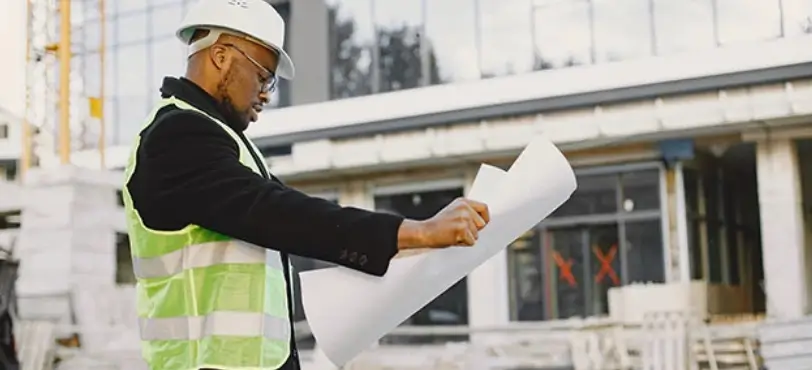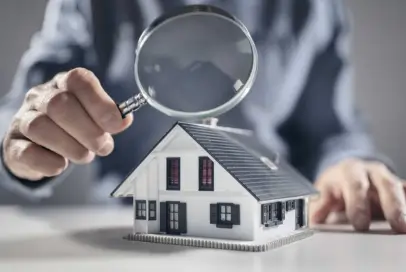Professional Commercial Property Inspections in Dubai
A property may look perfect, but only a detailed inspection reveals its true condition. Our commercial inspections in Dubai give you complete clarity before you invest.
We provide detailed Commercial Property Inspection services in the UAE, examining the mechanical, electrical, and structural components of your home to ensure safety and compliance. Our certified inspectors deliver a comprehensive report with high-quality photos and practical recommendations, helping you make informed decisions before buying, selling, or maintaining your property.
Leave your phone, We’ll call you in 15 min
Why Choose Snagging Inspection
Snagging Inspection is trusted in Dubai for precise reporting and open communication. Our certified inspectors and engineers specialize in structural, MEP, and facade systems, and ensure every commercial property is inspected with technical accuracy and care.
We provide unbiased documentation, including high-quality images and repair notes, within a short time after the inspection. Our team understands Dubai and UAE property laws and is committed to helping landlords, tenants, and managers avoid disputes and maintain complete confidence in every inspection.

What We Cover in a Commercial Inspection
Our inspection covers all major systems that keep a building safe and functional. Each property is inspected based on its type, size, and intended use.
|
|
|
|
|
|
|
|
Types of Commercial Inspections
We offer inspection plans designed for different stages of property ownership. Each type follows the same professional process but focuses on the needs of your project.
Inspection Type | Purpose | When to Schedule |
Pre-purchase inspection | Identifies hidden defects before purchase | During due diligence |
Periodic maintenance inspection | Finds wear and tear early | Once or twice a year |
Snagging (handover) inspection | Checks new buildings before ownership transfer | Before the final handover |
Confirms stability and compliance | During construction or renovation |
Why a Commercial Inspection Is Essential
A commercial inspection helps prevent costly issues such as HVAC failures or foundation problems before they escalate. It confirms that the property complies with Dubai’s regulations and engineering standards, helping owners and buyers assess risks to better budget or negotiate. The process also improves safety for occupants and staff and supports property value by providing documented proof of condition.

Inspection Tools and Methods
Our inspectors use modern tools that allow detailed checks without causing damage. These tools ensure accurate results and reliable inspection outcomes. We use thermal cameras to identify electrical or insulation problems, moisture meters to detect leaks and hidden dampness, and drones for roof and facade assessments. We perform load and pressure testing for mechanical systems and laser levels & measuring tools for alignment and structure.

What You Receive After Inspection
We prepare a full inspection report, including organized photographs and observations, after the site visit. Each defect is grouped by severity so you can see which items need urgent repair. We explain every issue in simple terms and provide suggested actions to guide your next steps.

What is the Turnaround Time and Pricing
Our team completes the inspection quickly and sends the report within 24 to 48 hours. Our pricing depends on the property’s size and the scope of work. You can contact us anytime for a quote or schedule a visit that fits your timeline.
How We Perform the Inspection
Site review and walkthrough
Our certified inspectors check the property layout and records.
System testing
We verify HVAC, electrical, and plumbing performance.
Specialist input
Our engineers for structure, fire, and MEP systems join as needed.
Use of inspection tools
We use technology to scan hidden areas for deep checks.
Final report and feedback
You receive a summary with images and repair guidance.
What to include in Property Handover Inspection
An inspection of the property handover includes prior to moving the utilities present, any damages done, and the property itself. Documents and other processes, as well as safety measures, should be verified for proper handover and seamless transition to the new owner.

Office / commercial space
HVAC zoning, electrical circuits, interior finishes, lighting, and fire systems

Retail / showroom
Electrical loads, signage framing, and shop front structural integrity

Warehouse / industrial
Roof condition, floor flatness, loading dock systems, and utility capacity

Multi-tenant property
Separate systems, tenant-fit-out checks, and common area inspections
Compliance and Standards We Follow
We work in accordance with Dubai Municipality and DDA guidelines and ensure that all inspections comply with local rules.
We check Fire safety, MEP performance, and structural compliance using approved standards followed in the UAE.
Frequently Asked Questions
When will I get the report?
We usually provide detailed, comprehensive reports, including digital evidence, within 24 to 48 hours of the inspection.
Do you check elevators and fire systems?
Yes. We include certified specialists to check elevators and fire systems when required.
Do you inspect outside Dubai?
Yes. We serve clients in Abu Dhabi, Sharjah, and other emirates.
Can I fix defects before handover?
Yes. Our report helps you address issues before signing off.
What is the cost of a commercial property inspection in Dubai?
Prices usually depend on the property’s size and scope.
Can I use the inspection report to renegotiate the property price?
Yes. The report helps you discuss repairs or adjust the price based on actual findings.
Do inspectors check HVAC, plumbing, and electrical systems in commercial buildings?
Yes. Our certified inspectors check HVAC, plumbing, and electrical systems in commercial buildings. These systems are a key part of every inspection we carry out.
Why do I need a commercial property inspection?
A commercial property inspection is necessary. It allows you to learn more about potential issues before you purchase or lease your property.
What does a commercial property inspection include?
It checks significant structural systems, HVAC, plumbing, electrical, and fire safety, and audits finishes and compliance with regulations.

